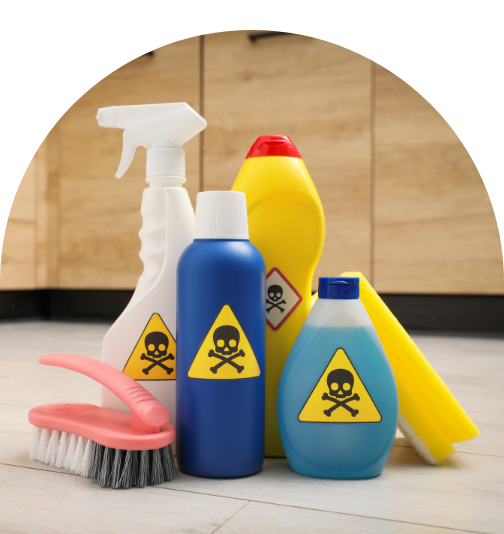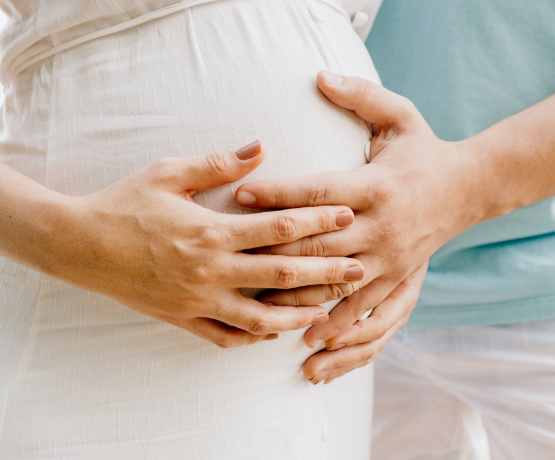Detoxify Your Way to a Healthier Home and Improved Fertility
Your home is your nest, and as you embark on a healthier lifestyle, it’s important to be aware of how many toxins you let past the threshold. In this article, I will provide you with some guidance on how to detox your home to promote optimal health and fertility.
Understanding the Need for Home Detoxification
Our homes should ideally be sanctuaries of health and vitality, but unfortunately, they often harbor hidden toxins that can negatively impact our fertility and overall health. Toxins can enter our homes through various sources, including household products, building materials, and even the air we breathe. These toxins, when accumulated over time, can disrupt hormonal balance and reproductive function.
Step 1: Assess Your Environment
The first step in detoxifying your home is to assess your living environment. Here is a quick list of where you can begin auditing for toxins:
- Cleaning Products: Many conventional cleaning products contain harmful chemicals like phthalates, parabens, and volatile organic compounds (VOCs). Switch to natural, eco-friendly alternatives or consider making your own cleaning solutions using ingredients like vinegar, baking soda, and essential oils.
- Indoor Air Quality: Poor indoor air quality can lead to respiratory issues and impact fertility. Ensure proper ventilation, and consider using air purifiers with HEPA filters to remove allergens and pollutants.
- Personal Care Products: Evaluate your personal care products, including cosmetics, lotions, and shampoos. Choose products free from harmful ingredients such as parabens, sulfates, and synthetic fragrances.
- Cookware and Food Storage: Opt for non-toxic cookware, like stainless steel, cast iron, or ceramic coating, and replace plastic containers with glass ones for storing food. Plastics are made of chemicals, such as bisphenol A (BPA) and are released when exposed to heat or reused over multiple times. These endocrine-disrupting chemicals have deleterious effects on fertility as well as human development.
- Water Quality: Test your tap water for contaminants and consider investing in a quality water filter to remove toxins like chlorine, lead, and pesticides.
Step 2: Declutter Mindfully
A cluttered home can be stressful and challenging to maintain. Take time to declutter your living spaces, not only for a sense of order but also to reduce potential hiding places for dust and allergens. Dispose of items you no longer need and consider organizing with natural materials like bamboo, wood, or glass.
Step 3: Choose Non-Toxic Building Materials
If you’re building or renovating your home, consult with a contractor experienced in using non-toxic building materials. Look for options that minimize the release of Volatile Organic Compounds (VOCs), gases that are emitted into the air from products or processes, which can compromise indoor air quality.
Step 4: Embrace Natural Living
Incorporate natural elements into your home. Indoor plants not only add aesthetic value but also improve air quality by absorbing toxins and releasing oxygen. Consider using natural materials for furnishings and decor, such as organic cotton, wool, and sustainable wood.
Step 5: Foster a Peaceful Sleep Environment
Quality sleep is crucial for fertility and overall health. Invest in a comfortable, non-toxic mattress and choose organic bedding to reduce exposure to harmful chemicals.
Step 6: Seek Professional Guidance
More and more people are realizing that the phase before getting pregnant is complicated, so they seek out professional support early. I have consulted with countless couples seeking personalized guidance on optimizing their fertility through natural and holistic approaches. In our 4R Fertility Program, we assess where toxins are found and how it affects fertility in both women and men.
Dr. Christina and I are committed to providing comprehensive care that addresses more than just fertility concerns. Our approach respects conventional medicine with functional and holistic strategies to get to the root cause of your health issues. If you are looking for functional medicine support in your journey to pregnancy click here to watch our on-demand webinar, where we reveal the 4R Fertility Formula™ we use to work with our clients. If what we share sounds good, we invite you to apply for a spot in our high-touch group program that has over an 80% success rate in helping couples conceive naturally.
Many common household products, such as cleaning supplies, personal care items, and plastics, contain endocrine-disrupting chemicals like phthalates and parabens. These chemicals can mimic or interfere with natural hormones, leading to hormonal imbalances. Additionally, our bodies accumulate toxins over time from exposure to environmental pollutants. These toxins can affect various bodily systems, including the reproductive system. By reducing the overall toxic burden in your home environment, you decrease the risk of these toxins interfering with fertility. This is particularly important for individuals with underlying fertility challenges.
For men, detoxifying the home environment can positively impact sperm quality. Exposure to toxins and pollutants can harm sperm production and function. By minimizing toxin exposure, men can potentially improve sperm count, motility, and morphology, all of which are critical for successful conception.
Women’s reproductive health can also benefit from a detoxed home. Harmful chemicals, stress, and poor indoor air quality can disrupt the menstrual cycle and ovulatory function. By creating a cleaner and more supportive living environment, you can enhance regular menstrual cycles and improve the chances of ovulation, which is essential for conception.
Conclusion
While we can’t rid the world of toxins, we can start with our homes as a step in optimizing health and fertility. By identifying and minimizing sources of toxins in your living environment, you can create a nurturing space that supports your well-being and enhances your chances of conceiving naturally.








